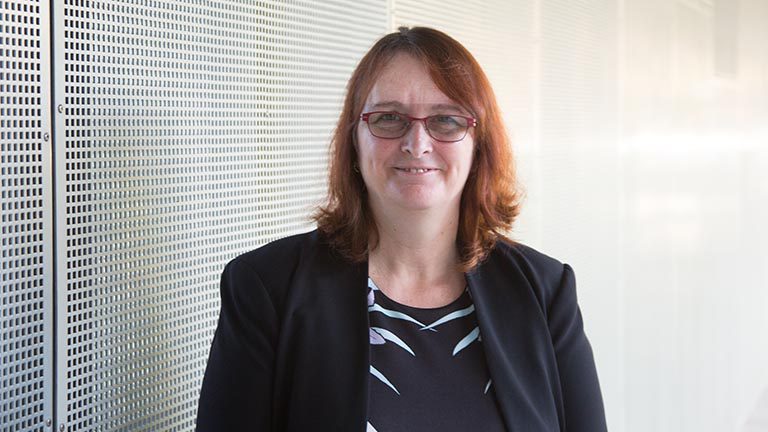The Australian Longitudinal Study on Women’s Health started in 1996 when over 14,000 women aged 18-23 (born 1973-78), over 13,500 women aged 45-50 (born 1946-51) and just under 12,500 women aged 70-75 (born 1921-26) completed their first survey. I7 years later, a new group of 18-23 year-olds (born 1989-95) joined the study.
The way the study works is that the same women take the survey roughly every three years, with older women ramping up to six-monthly surveys. Their combined data builds a rich story about the complex physical, psychological, social, behavioural, and demographic factors that influence their health and use of healthcare services across the course of their lives.
This information is then provided to Government to assist with the development of policy and practice affecting women’s health.
Study Director at University of Newcastle, Professor Deborah Loxton says, “Over the past 27 years, our investigators and collaborators have written over 1000 papers and 50 commissioned reports that have helped to guide women’s health care in Australia.”
Professor Loxton says the biggest surprise has been the high prevalence of sexual violence.
“It’s disappointing but the fact that women are open to disclosing it gives me hope for change,” she says.
On a lighter note, Professor Loxton says that one other surprise in the data was the fact that the most common name among the oldest two cohorts was the same: Margaret.
So, what have been some of the other key findings? Professor Loxton shares her insights:
- Access to healthcare changes between the city and the bush
ALSWH was the first study to show the difference in healthcare between women living in rural/regional and metropolitan areas – they had less bulk billing and higher out-of-pocket costs.
- Sexual violence is rampant
Being a longitudinal study, we have a unique opportunity to build trust with our participants and see how their stories unfold. Thanks to the women in the study, we now know that the prevalence of sexual violence against women in Australia is much higher than we previously thought – 51% of women in their 20’s, 34% of women in their 40s, and 26% of women aged 68 to 73 have experienced sexual violence.
- Domestic violence has long-term physical and mental health impact
ALSWH was the first study to show the significant long-term physical and mental health impacts of domestic violence using longitudinal data, and we have advocated strongly for policies to include recovery. We’re especially pleased to see that the Australian Government’s National Plan to End Violence Against Women and Children 2022-23 acknowledges the long-term health impacts of violence. It also includes action items to support women’s long-term recovery and to further invest in research on the long-term impacts of gender-based violence.
- Mental health screening of pregnant and post-partum women leads to better outcomes
The information shared by our 1973-78 cohort mothers has contributed greatly to our knowledge of the emotional health challenges facing pregnant and postpartum women. We found that the risk factors for postnatal depression include a woman’s mental health history, recent stressful life events and lack of available social support. Our research showed the value of mental health screening during pregnancy. Women who were screened for depression were more likely to be referred to mental health and other support services during pregnancy (19.0% vs. 3.7%) and in the first year postpartum (20.7% vs. 4.0%) than those who weren’t screened.
Importantly, when women experiencing significant distress were asked about their emotional health by a midwife, GP, or obstetrician were also far more likely to seek help for these issues than those who weren’t asked. Perinatal mental health research based on ALSWH data contributed to the evidence base underpinning the clinical guidelines for perinatal mental health and subsequent changes to the Medicare Benefits Schedule to include a mental health assessment as part of women’s antenatal and postnatal health care.
- Endometriosis affects one in nine women
Endometriosis is a debilitating inflammatory disease, that causes scarring, chronic painful periods, heavy menstrual bleeding, bowel and bladder pain, and sometimes infertility. Unfortunately, diagnosis is challenging, and can take years. As part of the National Action Plan for Endometriosis ALSWH was engaged to estimate – for the first time – the prevalence of endometriosis in Australia. ALSWH showed one in nine women in Australia have Endometriosis.
- Using home care services slows the rate of admission to aged care
Data from the 1921-26 cohort reveals the factors that contribute to ageing well – not just reaching old age, but actively enjoying the journey. Their data has shown that using home care services can slow older women’s rate of admission to residential aged care. Women who used more services had a significantly lower rate of admission to aged care than women who only used a few basic services.
- When you get your first period impacts menopause and heart health
The 1946-51 cohort were aged 40-45 when joined the study in 1996. They have contributed to our understanding of how the timing of reproductive events impacts our health in later life. For instance, women who get their first period before the age of 11 are 50% more likely to experience frequent hot flushes and night sweats during the menopause transition. Those who experienced premature menopause (before age 40) are twice as likely to experience a non-fatal cardiac event before the age of 60 as those who went through menopause at age 50. Women who had an early menopause (before age 45) were 40% more likely to suffer a non-fatal cardiac event. These are valuable insights for women approaching the menopause transition, and their clinicians.
ALSWH is jointly managed by the University of Queensland and the University of Newcastle and is located at the Hunter Medical Research Institute. Find out more here: Home – ALSWH
This article provides general information only, and does not constitute mental health or medical advice. If you have concerns regarding your mental health, seek appropriate medical care or contact Lifeline on 131114.








